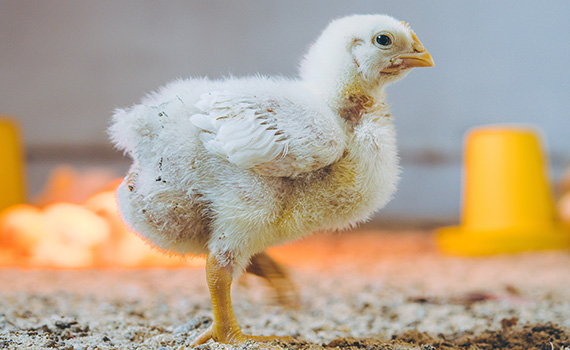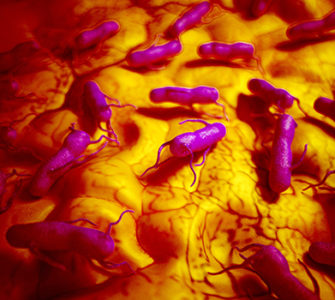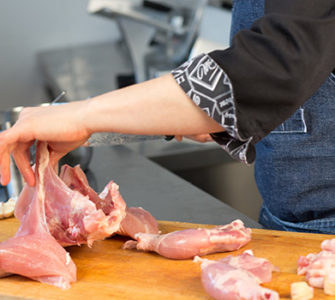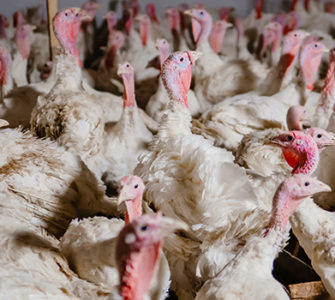Reusing poultry litter may reduce antibiotic-resistant Salmonella
Reusing poultry litter can help boost bird health and may help prevent the transfer of antibiotic-resistant Salmonella, scientists have discovered.
Researchers at the University of Georgia’s (UGA) department of poultry science and the US National Poultry Research Center (USNPRC) found “good bacteria” present in used litter helped bolster the immune systems of broilers.
What’s more, reusing litter also reduced the prevalence of multi-drug-resistant strains of Salmonella — findings which could have important global implications for human and bird health.
In the study, scientists challenged broilers with a non-antibiotic-resistant strain of Salmonella. Some of those birds were then raised on fresh litter, while others were raised on reused litter containing feces, uric acid, feathers and chicken feed.
The research team found chickens raised on reused litter had a 66% lower Salmonella-positivity rate compared to chickens raised on fresh litter (79%).
“Similar to the way human breastmilk contains good bacteria that helps boost a human baby’s immune system, litter is the first bacteria that chicks encounter and it also boosts their immune system,” said the study’s lead author, Adelumola Oladeinde, a research microbiologist with USNPRC and adjunct faculty in UGA’s College of Agricultural and Environmental Sciences.
“Chickens raised on fresh litter only get the microbiome of the litter itself, which is mostly just wood shavings,” he said.
In addition to these findings, Oladeinde and his colleagues also discovered that some of the Salmonella-infected chickens on fresh litter were infected with a multi-drug-resistant strain of the pathogen, while there were no multi-drug-resistant Salmonella in birds reared on reused litter.
Given that the Salmonella strain used for the initial infection was not multi-drug resistant, the team did some further investigation and found that the resistance was transferred from Escherichia coli bacteria living within the chickens’ digestive systems.
Oladeinde said the research shows that reusing litter can play a vital role in poultry health, as well as controlling the spread of antibiotic-resistant foodborne bacteria.
Given the rise of antibiotic resistance around the world, the findings have global implications for poultry and human health, he added, while reusing litter can also be a cost-saving measure for the poultry industry.
“There is a notion that reusing litter to raise multiple flocks of chickens can only be bad, which has hampered the widespread adoption of litter reuse,” he said.
Recycling litter can cause ammonia to accumulate, which can impact worker health. In the US, producers change litter after at least 1 year, but in Canada and in some European countries, producers add fresh litter for every flock.
“These contradictory attitudes toward litter recycling show that we need more research focused on poultry litter,” Oladeinde said.
More collaboration and information sharing between industry and scientists is also important, he added.
Posted on October 20, 2022

















